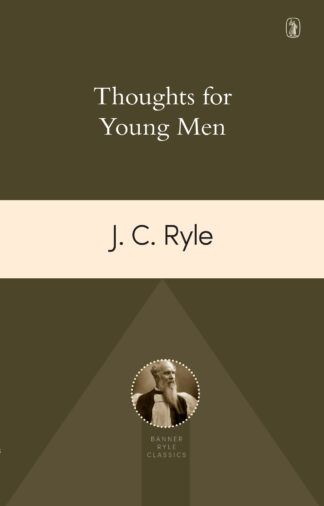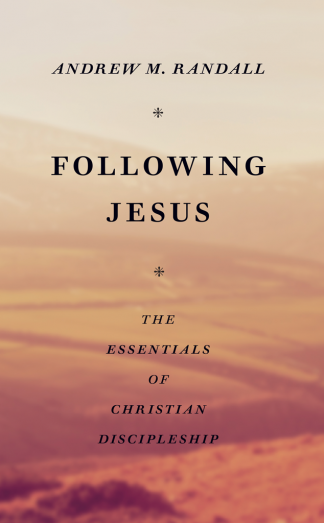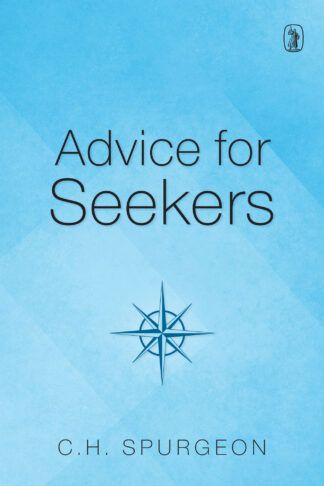Advice From a Puritan Mother
These extracts are taken from the diary1 of Elizabeth Jollie, 2 the wife of Rev Timothy Jollie, who was the minister of the Non-conformist congregation in Sheffield from 1681 to 1714. Mrs Jollie was herself the daughter of Rev James Fisher, the ejected vicar of Sheffield who died in 1666 when Elizabeth was 19 years old. Having preached acceptably for a year to the congregation at the New Hall, Timothy Jollie was ordained to the ministry in April 1681 and shortly afterwards, on 2nd July, he and Elizabeth Fisher were married. Her diary shows that she was no ordinary woman, for although not physically robust she possessed a strong Puritan character and faith and was a helpmeet to her husband in their family, the Church, and at the Attercliffe Academy. Her character was soon put to the test, for in 1682 Timothy Jollie was forced to flee from Sheffield to escape arrest under the Five Mile Act of Charles II.
The diary begins in 1683 when her first child Betty was about one year old. Mrs Jollie appears to have had apprehensions about her own safety and health and was clearly anxious to leave some account of her husband’s persecutions and to lay up motherly spiritual counsel for her daughter in later years. She describes initially how she was expecting the birth of Betty at the time of the Five Mile Act, but that ‘it pleased the Lord so to order it that thy dear father came home and stayed while I was in travail from Wednesday to Lord’s Day. After this he stayed with me some weeks, then he was forced to withdraw, and go from one friend to another, and sometimes came home, and then went again. January 19th, 1683, he came home, and the very next night he was taken in a very rude manner. They would not suffer him to speak to me.’
The following two years involved imprisonment, hardship and moving from house to house for the Jollie family. In the uncertainty of life, Elizabeth watched over her helpless little Betty and wrote down words of spiritual counsel that would help the following generation of her family to maintain the Puritan heritage that she dearly loved. She thus writes :
‘And now, my dear child, I would leave some few things with thee, not knowing that I may live to have opportunity to speak to thee, as follows, namely:
- In whatever place the Lord by his providence puts thee, be sure that his honour be the first and chief concern. Seek first the Kingdom of God, etc.
- Be diligent in doing thy duty as far as thou knowest it.
- Never be hasty to put thyself into any new place and condition. Always pray to the Lord for direction, and ask counsel of faithful friends.
- Be sure, if any trust thee with anything that is to be kept secret by thy hands or tongue, be faithful or thou wilt first dishonour God; 2nd, lose a good conscience; 3rd, lose thy friend; and 4th, set a bad example.
- If there be any that have showed thee kindness, don’t ill requite them after.
- Be not forward to hear stories told of those thou art living with.
- Be not hasty to believe all thou hears without very good grounds for it.
- Meddle not needlessly with other people’s matters. Take heed of being a busybody.
- Take heed of telling stories of others. The Lord hath let me see a great evil in this.
- Try them thou conversest with before thou trust them.
- If thou live to be capable to give advice, be sure thou weigh the matter well, and hear all circumstances before thou give thy thoughts.
- Be sure thou be careful of speaking anything of any or to any wherein thou mayest have cause to repent of afterwards.
- Whatever company thou keeps be sure thou be afraid of thyself. Set a watch over thy thoughts, words, and actions, and before thy eyes.
- Be much in reading the Scriptures. Beg of God to help thee to understand them.
- Be sure thou beg of the Lord earnestly to help thee, that thy conversation both towards God and man may be blameless and harmless, as becometh the Gospel.’
Having given her daughter words of counsel regarding general Christian living, Mrs Jollie pondered not only the uncertainty of life, but also the difficulties that Betty might face in keeping herself. Calling to mind that all their goods had been confiscated, and the reduced means of Nonconformists in general, she advises Betty how to conduct herself in a place of employment:
‘My dear child, — I know not what portion of this world the Lord may give thee, but if thou have not to do withal to maintain thyself, I would advise thee, rather than be burdensome to any of thy friends, to go to service if thou can light on a suitable place for thee.
- Be sure thou go into a religious family, and also where thou mayest increase thy knowledge as to the outward affairs of the world, and also where thou may have something to help thy necessities.
- Be sure thou study thy duty, that none may have reason to speak ill of thee.
- Be faithful to thy trust in word and deed. If thy fellow-servants be unfaithful, reprove them, and advise them to do their duty. If they will not hear thee, declare it to thy master or mistress. Take care of being partaker in their sin by thy silence.
- If thy fellow-servants should give thee fine smooth words, beware. Try before thou trust them.
- Take heed of any fond carriage.3 Be more than ordinarily watchful in men’s company. Lay not temptations before thee in any way. If they lay any temptation before thee, abhor them, and be more than ordinary careful how thou come in their company.
- If thou have much employment, be sure always to redeem time for thy duty to God in strict prayer and reading the Scriptures. Attend family prayer and hearing the Word read. Col. 3. I Peter 2.
- Be very willing to learn those things thou wants to understand.
- Be willing to be found fault with, and take heed of unhandsome answering again.’
Being herself the daughter of the founder of the Non-conformist Church in Sheffield, Elizabeth Jollie felt strongly the importance of being responsibly attached to a ‘gathered’ society. She draws on her own experience to show that being a member of the New Hall congregation had been no automatic and expected procedure, but that it had entailed serious spiritual exercise. The value to her of the means of grace and partaking of the Lord’s Supper are clear as she continues her advice;
‘My dear child, if the Lord should stir up thy heart to desire to join in as a member to some society, that so thou might partake of that blessed ordinance of the Lord’s Supper, be sure that that society are called, and have joined in a gospel way, and that they have ordinances administered in a gospel manner. It was my endeavour so to do, and as far as the Lord gives me understanding, I did join myself with a society that did walk the nearest the gospel rule of any that I could join with.
Though I must needs say I had a high estimation of, and did honour some other societies here about; yet, I thought that which I joined with was the nighest the rule that God hath set us to walk by. I may tell thee it did cost me many prayers, and tears, and searching books that did treat of that subject, before I could come to any grounds of satisfaction.
- If thou have found such a society that thou art well satisfied upon good grounds to join withal, be sure thou art rightly qualified according to the Gospel to be a member of that society before thou join with it.
- Thou must be able to give such an account of thy faith as will satisfy those thou joins with.
- Study thy duty what thou ought to do in such a high relation, both with respect to God, to thy own soul, and those thou joins with. I may tell thee it cost me much searching of heart and trying my heart, and asking counsel of friends. I found much advantage and great comfort. I met with great shaking afterwards. Had I not entered into that station with difficulty it would have been much worse for me. There is one thing I would not be positive about, but I would wish thou might be entered into church relation before thou be married. I found this a great advantage, for I had a great work to do after. I know my work is not done. I have more upon me now than ever.’
To this counsel concerning general conduct, employment and church membership, Mrs Jollie finally adds advice to Betty about marriage. Her own happy marriage until her death in 1709 had seen times both of persecution and prosperity and is an eloquent testimony to the truth of these following words:
‘My dear child, if the Lord by his providence, call thee to marry,
- Be sure thou do not enter that relation before thou hast spread thy case before the Lord. Beg direction of him. I can tell thee from my experience his presence is above all comforts. Do not run headlong.
- Be sure thou set thy love where God hath set his love. Beware of one that is not a child of God. Consult thy father, if he is spared. Do nothing without his advice. I have found often reading my own duty hath helped me to understand it, and put me more upon doing it; but find it is good not to affect much reading, but to meditate on what we read and get it seated in the mind, and labour to understand it. Then do I profit most by it.’
A few entries up to the year 1696 relating to providences and deaths in the family follow the above extracts, mingled with exhortation to prayerful thankfulness and in 1688 — ‘Dear Betty, remember the Revolution.’4
The reading of such godly counsel leads one to wonder how Betty herself grew up in later years. Happily we have further information about her from the diary of her younger brother, Timothy. (On account off ailing health she went to live with his family in London and died there on 17th November, 1739, aged 57). Her brother Timothy speaks of her in his diary:
‘In sovereign pleasure the all-wise God bereaved me of a desirable relative whose example and conversation had been very useful to my family. Dear sister Elizabeth Jollie, for 10 years an asthmatic disorder had been growing upon her . . . At last it overcame her strength and she resigned her soul into the hands of him that gave it, Nov. 17. She was buried in Bunhill Fields’ Nov. 23. May her pattern live with us. Her devotion was unaffected, her religion was uniform, her knowledge considerable and her prudence remarkable, her inoffensive and complying temper gained an universal goodwill.’ Betty never married.
Mrs Jollie also wrote a second diary relating to the childhood of her son, Timothy, already mentioned above. It was written during 1706 when Timothy was 14 years old. In it she recounts the many providential deliverances from childish diseases and dangers since the time ‘when thou wast 11 days old we did offer thee up in baptism and thy dear father did baptise thee and we earnestly desire thou may answer thy name. We do desire freely to devote thee to the Lord’s service to work in his vineyard if that be the calling whereby thou may the most honour him. I earnestly desire he would incline thy heart to it and make thee a faithful labourer to win many souls to Jesus Christ.’ Such a desire was fulfilled, for Timothy Jollie junior trained in his father’s Academy at Attercliffe and after being assistant at Upper Chapel, Sheffield, he became assistant to Matthew Clarke at Miles Lane Chapel, Cannon Street, London, E. C., and then pastor of that congregation for 31 years.5
Her own health being precarious, Mrs Jollie committed to writing spiritual advice to her youngest child that echoes what she had written to Betty long before. With a steadfast faith that had weathered the storms of persecution and prosperity she writes:
‘My dear child, I know not how long it may please the Lord to spare me — I have many alarms. Therefore I would set down such circumstances in thy life as when thou looks back and seeth what the Lord hath done for thee, ye may admire how he hath followed thee with his goodness and given in mercy as ye stood in need of them. I would also leave a few things with thee which may be of use if thou mind carefully to practise them.
- Be sure daily to pray to God. Labour to get an awe of him upon thy heart and a true sense of thy wants. Take heed of formality and look for acceptance in and through Jesus Christ.
- Daily read the holy Word of God. Make it the man of thy counsel, let it be the rule of thy whole life.
- Constantly attend upon the word preached when it pleaseth the Lord to give thee leave. Take heed of trifling excuses to hinder thee from thy duty.
- Take heed of hypocrisy and formality in all the duties thou dost perform.
- Be much in meditating of God and Jesus Christ and of eternity.
- Be very careful to do relative duties. The more thou practisest these the more comfortable will thy life be.
- My dear child, above all get anointed in Jesus Christ, without which ye cannot be happy neither here nor hereafter.
- Pray daily that God would help thee to love him and his word and ordinances, and his people whatever name they go by.
- Take heed of a censorious spirit. Labour to love the image of God wherever thou seest it.
- Labour for that charity the apostle speaks of in I Cor. 13. Take not up religion by name — it is that which hath done more mischief in this poor nation for which we have cause to mourn.’
Mrs Elizabeth Jollie died in 1709 at the age of 62 years, having exemplified the eulogy of Proverbs 31:10-30; ‘Who can find a virtuous woman? for her price is far above rubies. The heart of her husband doth safely trust in her, so that he shall have no need of spoil. She will do him good and not evil all the days of her life . . . She openeth her mouth with wisdom, and in her tongue is the law of kindness . . . Her children arise up and call her blessed . . . Favour is deceitful and beauty is vain: but a woman that feareth the Lord, she shall be praised.’
This article was first published in the May 1977 edition of the Banner of Truth magazine.
Notes
- J. E. Manning, A Good Puritan Woman: pages from the diary of Mrs Timothy Jollie, (Sheffield Independent Press, 1900).
- ‘A Puritan Woman of Sheffield’. Sheffield Local History Archives. Local Notes and Queries, Vol. 2, p 48, 1875.
- Foolishly tender (amorous) conduct.
- ‘The ‘Glorious Revolution’ of 1688 which brought William and Mary to the English throne and caused the Roman Catholic James II to flee abroad.
- Gatty’s Joseph Hunter’s Hallamshire (1869) pp 293 et seq., 425.
Further Helps for Young Souls

Description
These extracts are taken from the diary1 of Elizabeth Jollie, 2 the wife of Rev Timothy Jollie, who was the minister of the Non-conformist congregation in Sheffield from 1681 to 1714. Mrs Jollie was herself the daughter of Rev James Fisher, the ejected vicar of Sheffield who died in 1666 when Elizabeth was 19 years […]

Following Jesus
The Essentials of Christian Discipleship
Description
These extracts are taken from the diary1 of Elizabeth Jollie, 2 the wife of Rev Timothy Jollie, who was the minister of the Non-conformist congregation in Sheffield from 1681 to 1714. Mrs Jollie was herself the daughter of Rev James Fisher, the ejected vicar of Sheffield who died in 1666 when Elizabeth was 19 years […]

Description
These extracts are taken from the diary1 of Elizabeth Jollie, 2 the wife of Rev Timothy Jollie, who was the minister of the Non-conformist congregation in Sheffield from 1681 to 1714. Mrs Jollie was herself the daughter of Rev James Fisher, the ejected vicar of Sheffield who died in 1666 when Elizabeth was 19 years […]
Latest Articles
Finished!: A Message for Easter March 28, 2024
Think about someone being selected and sent to do an especially difficult job. Some major crisis has arisen, or some massive problem needs to be tackled, and it requires the knowledge, the experience, the skill-set, the leadership that they so remarkably possess. It was like that with Jesus. Entrusted to him by God the Father […]
Every Christian a Publisher! February 27, 2024
The following article appeared in Issue 291 of the Banner Magazine, dated December 1987. ‘The Lord gave the word; great was the company of those that published it’ (Psalm 68.11) THE NEED FOR TRUTH I would like to speak to you today about the importance of the use of literature in the church, for evangelism, […]
